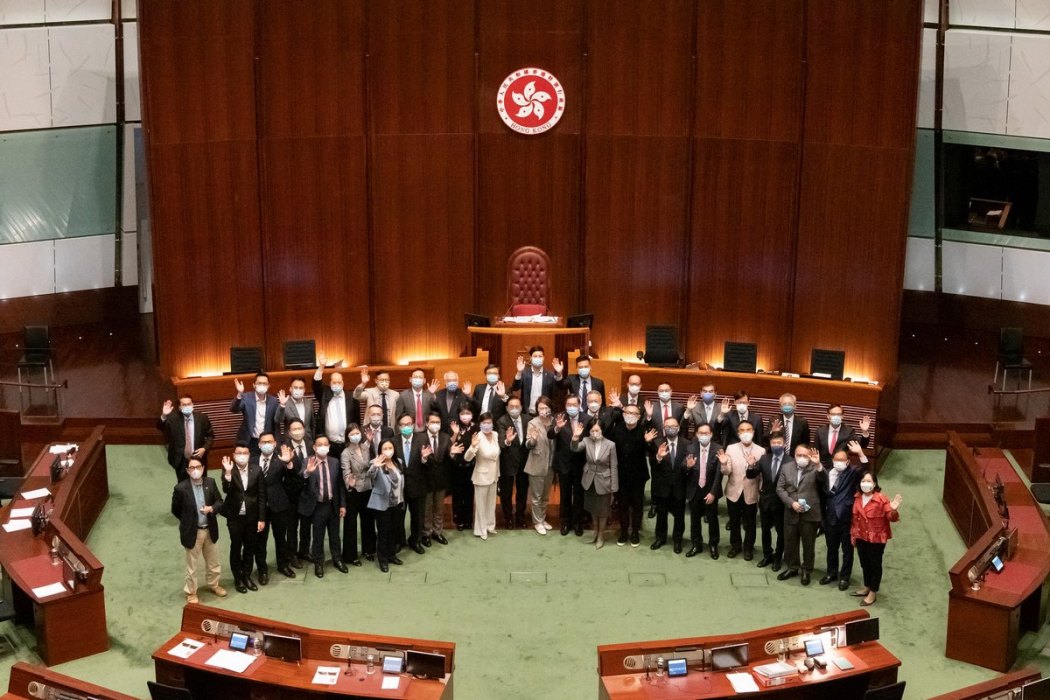Three people were arrested in Hong Kong on Tuesday for urging voters to cast blank ballots in upcoming polls, a corruption watchdog said, as the city cracks down on efforts to boycott the first race since Beijing revamped the electoral process.
Under a sweeping overhaul imposed earlier this year, only those deemed “staunch patriots” are allowed to take part in politics, and anyone standing for public office must be vetted for national security risks.

Beijing’s decree also sharply reduced the number of directly elected seats in the city’s legislature.
Sensitive to any move that might cast doubt on the new “patriots only” political model, the government has warned that boycotting the December 19 legislative poll could violate the national security law.
Two men and one woman became the first people arrested for allegedly “inciting another person not to vote, or to cast invalid votes”, according to a statement from the Independent Commission Against Corruption (ICAC) Tuesday.
The new offence can result in jail terms of up to three years and a maximum fine of HK$200,000 (US$25,672).
According to ICAC, the trio had reposted an online appeal for blank ballots. They have been released on bail.

Their arrest comes two weeks after self-exiled former lawmaker Ted Hui took to Facebook to ask Hong Kong voters to “cast a blank vote to resist the unjust system”.
Hong Kong’s Secretary for Security Chris Tang called Hui “despicable” for “pettily inciting citizens to break the law” and urged people not to share his post.
Crushing dissent
Hong Kong has never had fully free elections, but the recent electoral revamp gives even greater sway to pro-Beijing loyalists.
Under the new system, less than a quarter of the legislature’s seats will now be directly elected, instead of half.
The rest will be appointed by reliably pro-Beijing committees and special interest groups that have been vetted for their political loyalty.

Beijing says this vetting system is necessary to restore stability and wipe out “anti-China elements” after Hong Kong was rocked by huge, often violent pro-democracy protests in 2019.
That year, pro-democracy candidates scored a landslide in local elections seen as a referendum on the demonstrators’ demands.
The Chinese Communist Party has since tried to crush dissent in the semi-autonomous city, imposing the security law last summer and the electoral changes in March.
Most of Hong Kong’s major pro-democracy parties have either disbanded or seen their leadership drained by arrests and prosecutions.
The city’s largest pro-democracy party announced last month that none of its members had applied to contest December’s election.
Support HKFP | Policies & Ethics | Error/typo? | Contact Us | Newsletter | Transparency & Annual Report | Apps
Help safeguard press freedom & keep HKFP free for all readers by supporting our team

LATEST FROM HKFP
HKFP has an impartial stance, transparent funding, and balanced coverage guided by an Ethics Code and Corrections Policy.
Support press freedom & help us surpass 1,000 monthly Patrons: 100% independent, governed by an ethics code & not-for-profit.










